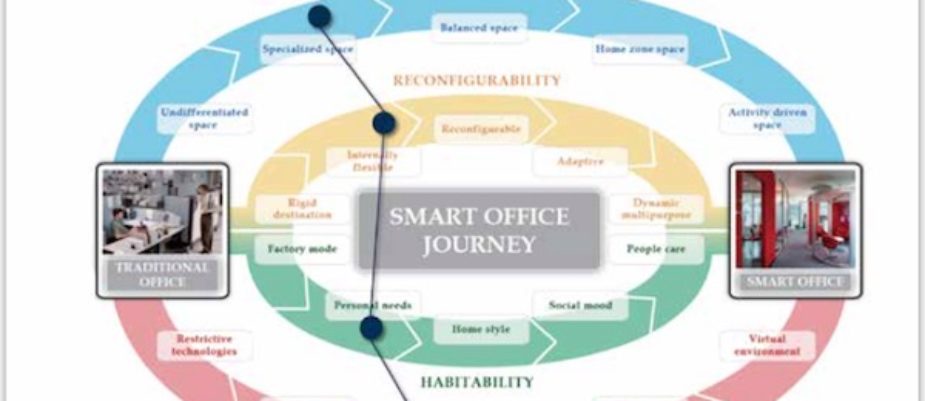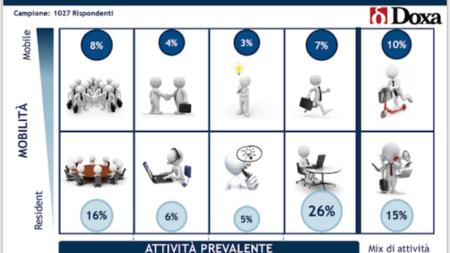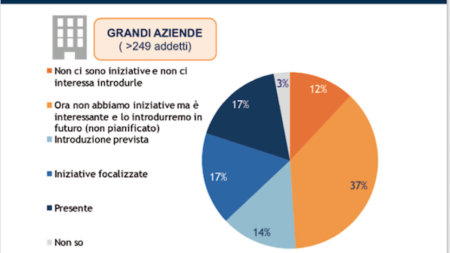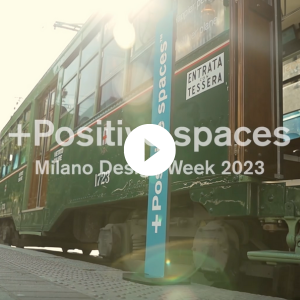
Despite a “legislative vacuum”, in Italy nearly 50% of the big companies has adopted flexibility-oriented policies (hours and work space, technological equipment, review of the office layout, changes in leadership styles). The big companies, who have started Smart Working projects have increased by 17 % (over 8% in 2014). A further 14% is getting ready for future projects and another 17% has started flexibility polices concerning special roles or requirements. Instead, just a 5% of small-sized enterprises is concerned.
Smart Working isn’t a fashion, but a cultural change requiring a long and deep evolution path. “It means to go beyond the introduction of single tools to create a result-oriented organization, based on trust, assumption of responsibilities, flexibility and collaboration” as explained by Mariano Corso, in charge of Scientific Research of Osservatorio Smart Working.
On the occasion of the conference named “Smart Working: scopriamo le carte!” at Centro Servizi of Banca Popolare di Milano, were presented the results of the study by Osservatorio Smart Working of School of Management of Politecnico di Milano (www.osservatori.net); a survey carried out on over 240 public and private organizations.
The impassioned speeches of those who told their experience prove that there is not just one formula of smart working, as Fiorella Crespi, Director of Osservatorio Smart Working explains “… it’s necessary to consider one’s specificities and try a consistence with objectives and business strategy to find balances. The subject of the middle management ‘s resistance was repeatedly broached, Philip Vanhoutte of Plantronics –author of Smarter Working Manifesto– declares that managers should go back school to learn the instruments of the new leadership modes.
Dynamism and Flexibility are keywords of Smart Working, in all its possible applications, including also the need for an office layout that can be reconfigured according to the standards of the Activity-Based Office. Ergonomic and comfort-conscious spaces designed to make people want to change. Even the posture, for instance with height-adjustable desks, that have shown considerable benefits in terms of health and prevention, as quoted Ernst Holzapfel of Sedus.
71% of managers think that Coworking is also an opportunity for organized companies, owing to the time/cost reduction of the home-office commuting and the feeling of isolation given by home working. Yet, just 36% of companies considers the Coworking space as one of the possible options. For the employees, the chief barriers to the use of Coworking concern the worry about the security measures of the corporate data (58% of interviewees).
Smart Working Award
The companies in nomination for were: ABB Italia for the project “Lavoro Agile @ABB”, Banca Intesa Sanpaolo for the project “Lavoro Flessibile in Intesa Sanpaolo”, BNL – Gruppo BNP Paribas for the project “Smart Bank”, L’Oréal Italia for the project “Be Smart! Work Smart!” and Siemens for the project “Siemens Office”) the Smart Working Award 2015 the winners are: Intesa San Paolo and Siemens.


















